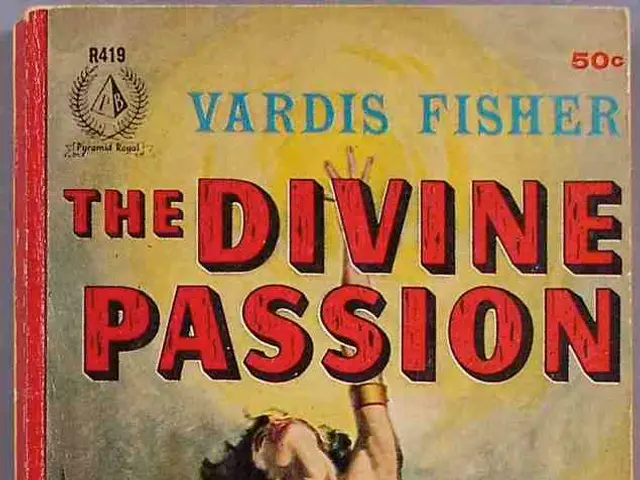Jennifer Burns discusses the ideological clashes between Ayn Rand and Milton Friedman
In the realm of economic thought, two influential figures have left indelible marks on society - Ayn Rand and Milton Friedman. While both advocated for capitalism and freedom, their approaches were as different as night and day.
Ayn Rand, the novelist and philosopher, is often criticised for her work being simplistic or absurd. However, her message of "to thine own self be true" resonates deeply, particularly in her novels like The Fountainhead and Atlas Shrugged. These works transformed lives and influenced personal decisions, shaping a romanticised, heroic image of capitalism. Rand saw capitalism as an uncontrolled, unregulated laissez-faire system, a pure social system of individual rights where no one may initiate physical force against others. She infused capitalism with a heroic narrative, portraying the productive individual as a hero whose rational self-interest and achievement are morally virtuous.
On the other hand, Milton Friedman, an economist, approached capitalism primarily from an economic and policy-oriented perspective. He focused on the efficiency of free markets, minimal government interference, and the practical benefits of economic freedom. Unlike Rand, Friedman was not as focused on the philosophical or moral heroism aspect; his work stressed empirical outcomes such as economic growth, monetary stability, and the dangers of big government intervention.
The impact of their ideas on society is profoundly different. Rand's influence is largely cultural and philosophical, inspiring libertarian thought, business leaders, and individuals drawn to her strong defence of individualism and productive achievement as moral imperatives. Her ideas have resonated deeply, creating an inverse Marxism that strikes a chord at a psychological level.
Friedman's impact, on the other hand, is more practical and policy-based. He shaped modern economic policy through advocacy of free-market capitalism, monetarism, deregulation, and limiting government roles. His work has influenced administrations and central banks worldwide, emphasising economic freedom and efficiency over ideological purity.
Despite their differences, both Rand and Friedman have profoundly influenced how capitalism is understood and defended. Rand's approach is a philosophical and moral idealism about capitalism centered on individual rights and heroism, while Friedman's is a pragmatic economic liberalism emphasising market efficiency and limited government.
It is important to note that Rand's ideas continue to challenge our understanding of individuality, capitalism, and human nature. Her work, while sometimes criticised for its unrealistic portrayal of achievement, has sparked important conversations about the role of the individual in society.
In contrast, Rand is often excluded from lists of great 20th-century thinkers. Some argue that her systematic thinking is perceived as outdated in an era that has moved beyond grand systems. Yet, her ideas remain relevant, challenging us to reconsider our understanding of individuality, capitalism, and human nature.
Milton Friedman, on the other hand, is recognised as one of the most influential economists of the 20th century. His work has had a lasting impact on economic policy, shaping the world we live in today.
In conclusion, Rand and Friedman were influential figures who advocated for capitalism and freedom, but from distinct angles - moral philosophy versus economic policy. Their ideas continue to shape our understanding of capitalism and its role in society.
Read also:
- Today's most impactful photographic moments
- Support for Eric Adams in The Post's Letters to the Editor on August 13, 2025
- Roosting Shark and Rambunctious Red Squirrels: Unconventional House Rental in Yorkshire Involving Aquatic Marvel, Squirrely Mayhem, and Mystical Planning Regulations
- Urban Tales: Winged Hedgehogs and Gridiron Mascots Highlight Our Legendary Series on TGC+!








